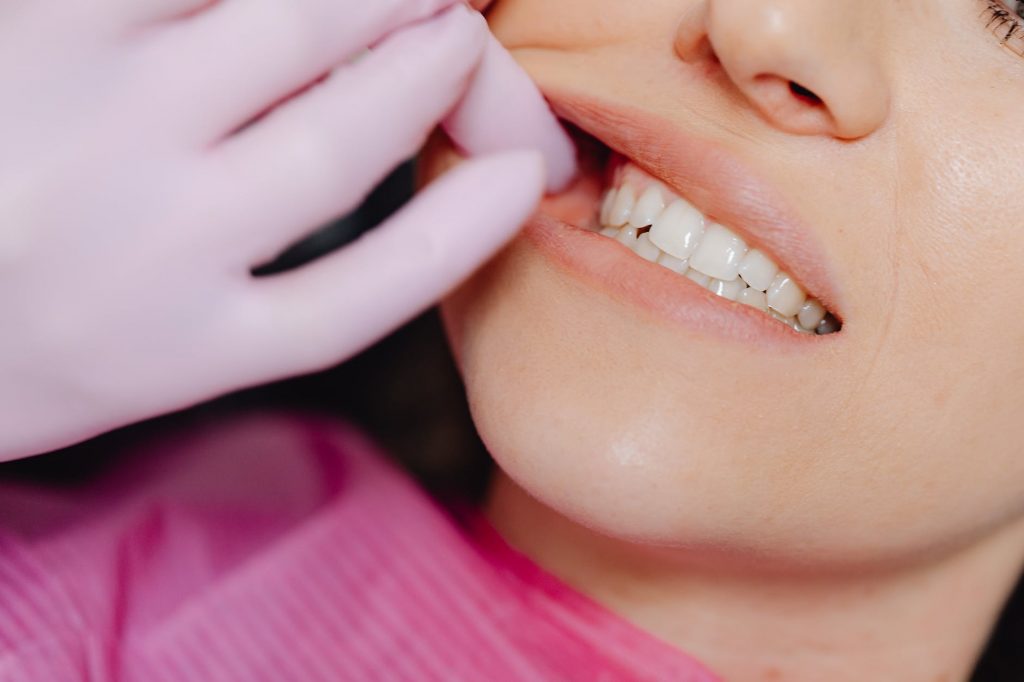Burning mouth occurs more frequently in women than men, especially women who are going through the menopause and in people over 50. Burning mouth in menopause is one of the unusual symptoms. A burning sensation in the mouth, for which no cause can be found. It is common, affecting up to 15% of adults. At Rowena Health we often see women who struggle with this and are unaware this is a symptom of menopause.
The causes are poorly understood, it could be a neuropathic pain caused by changes in the nerve fibres in the tongue. It can increase in times of stress, when talking or eating hot or spicy foods. The symptoms normally do not change the physical appearance of the tongue or mouth. There is pain in the mouth daily, but nothing to see, which can be very distressing.
To diagnose this we look for the following symptoms:
- A hot, painful burning sensation in the tongue, lips, gums, palate, throat or whole mouth, which is present for most of the day. It can be continuous or intermittent.
- It can also be accompanied by other symptoms like dryness, numbness, tingling or stinging, a bitter or metallic taste, loss of taste and increased thirst.
What are other causes of burning and soreness in the mouth?
- Oral causes like geographical tongue, recurrent aphthous mouth ulcers.
- Infections like oral thrush/candida or herpes simplex infection
- Dermatological causes like oral lichen planus
- Allergies like oral allergy syndrome
- Gastroenterological causes like acid reflux
- Vitamin or hormone deficiencies like hypothyroidism, diabetes or vitamin B12 deficiency
- Dental causes like ill fitting dentures or braces
- Drug side effects especially if they cause a dry mouth
- Red or white patches that could be cancerous. See your dentist or doctor urgently if unexplained red or white patches are seen and persist for longer than 3 weeks
Do I need blood tests or investigations for burning mouth in menopause?
Possibly they may help: FBC, ferritin, B12, folate, glucose or Hba1c, TSH and autoantibodies and possibly an HIV test.
What can help burning mouth in perimenopause and menopause?
This condition is not harmful. Reassurance and an explanation are helpful, once all necessary tests are complete. Burning mouth in perimenopause and menopause can be reduced by some food or drinks, by stress reduction, by sleep and rest, and by distraction techniques. There are not many studies on this but reports suggest that 50% of cases do get better on their own in 6-7 years. A full dental check up is best. It is unclear if HRT, Hormone Replacement Therapy, helps relieve the burning.
Lifestyle measures to help burning mouth in menopause
- Frequent sipping of water, sugar-free gum, sucking on ice
- Avoiding irritants like hot spicy foods, acidic fruits and juices, alcohol and mouth washes
- Stress reduction and CBT can help
- A book called Mindfulness for health, a book which is a practical guide to relieving pain, reducing stress and restoring wellbeing
- Support for mental health and psychological problems like anxiety and depression
- If drug treatment is needed, a low dose tricyclic antidepressant or an SSRI antidepressant may be helpful
Patient Information: British Dental health
Last updated August 2024 Dr Carys Sonnenberg, this article is for patients at Rowena Health, please use as guidance only, to be discussed with your own Dr.
Book an appointment at Rowena Health Menopause Specialist clinic for a midlife health, we would love to see you.


